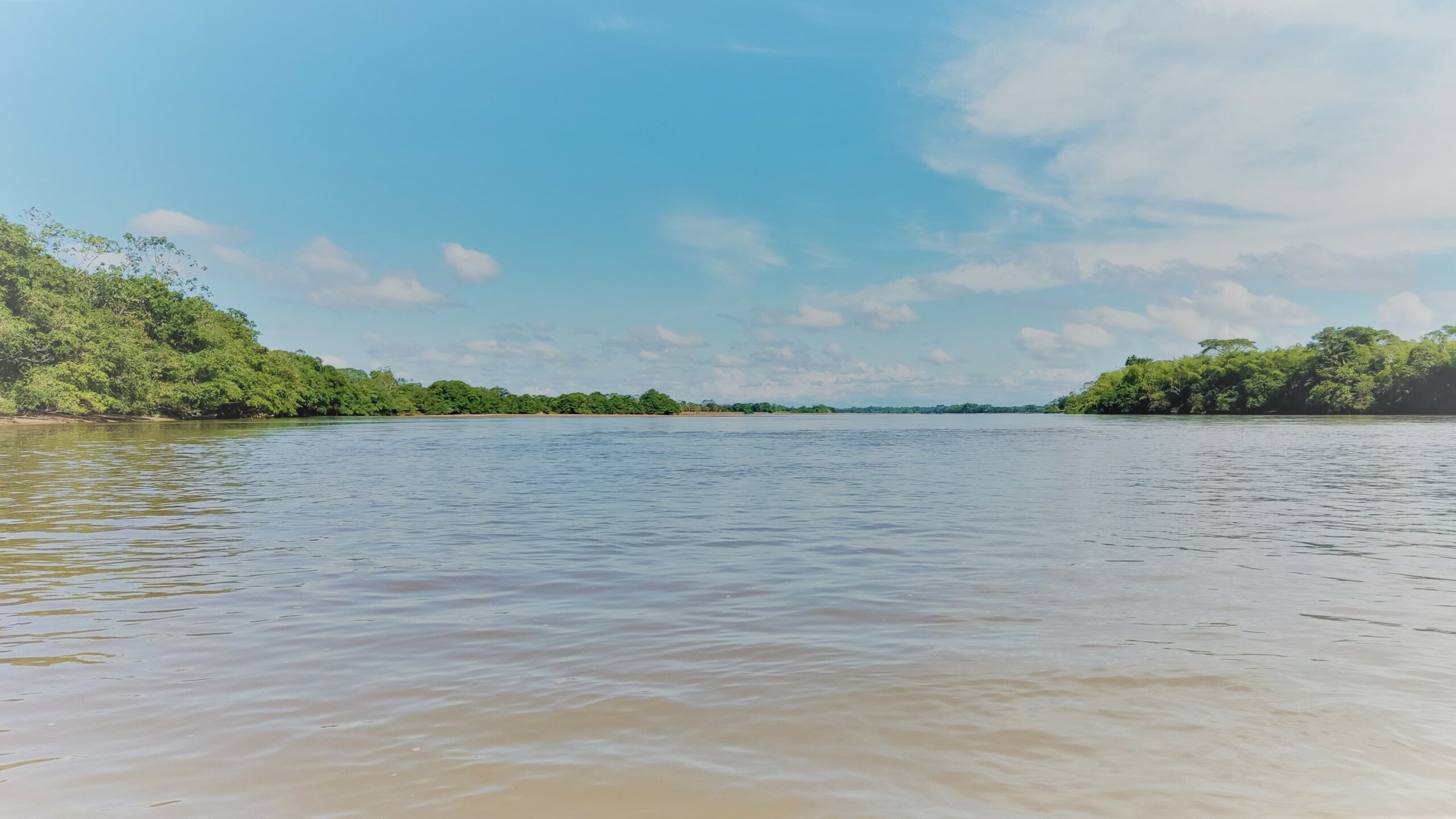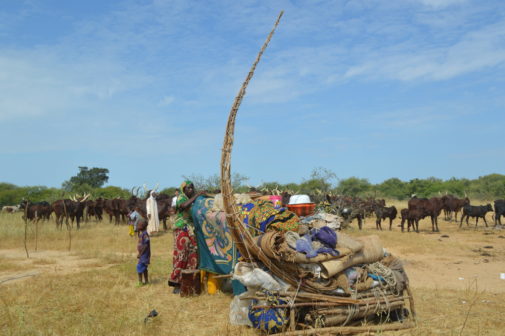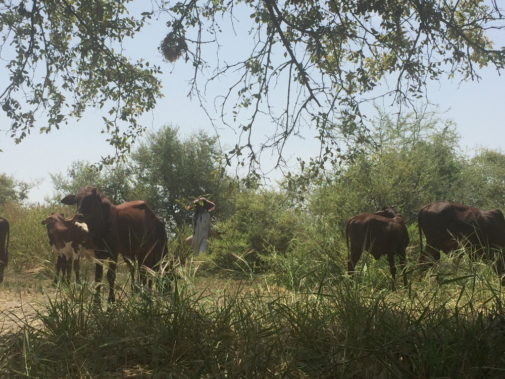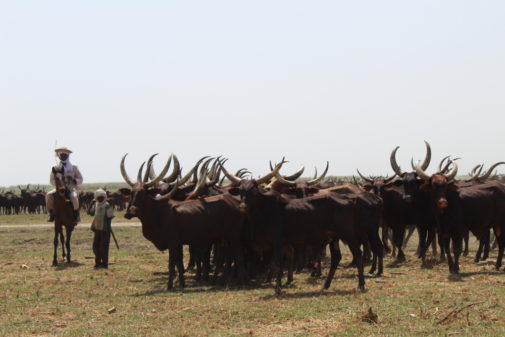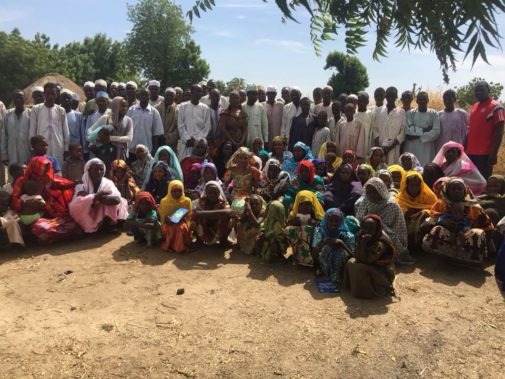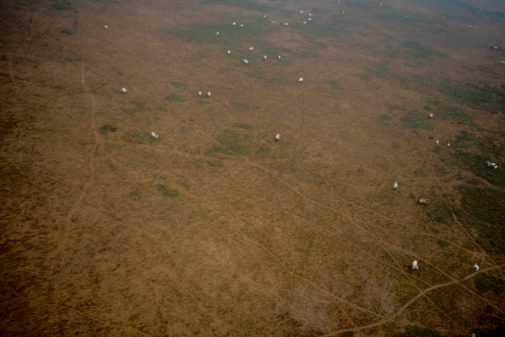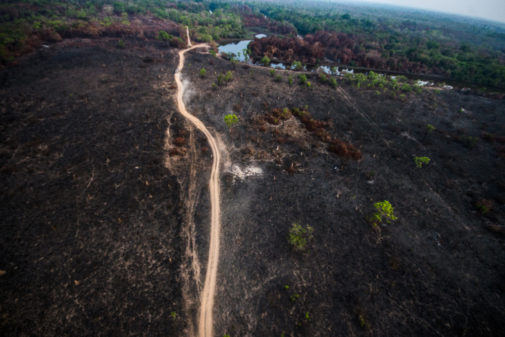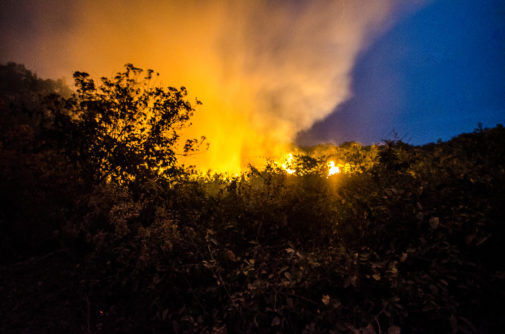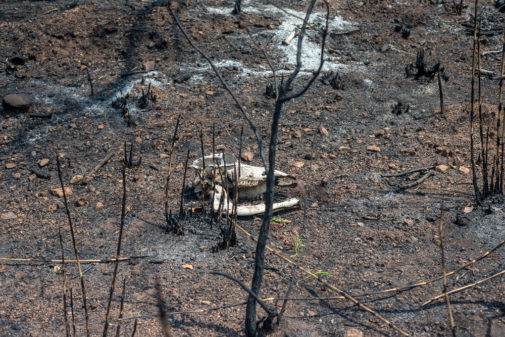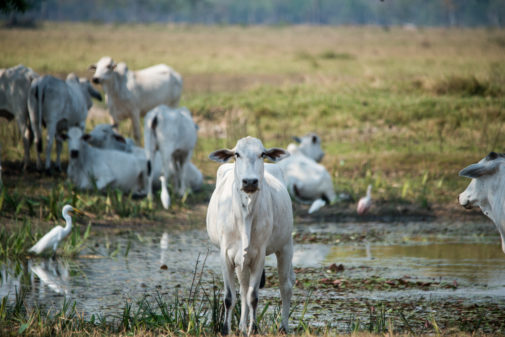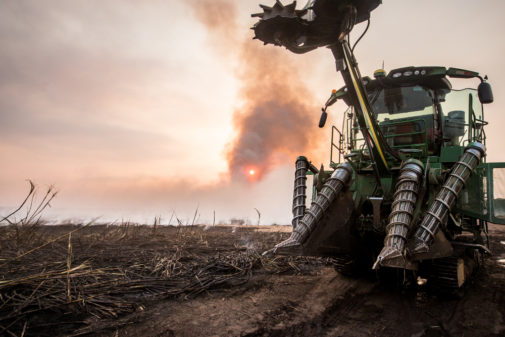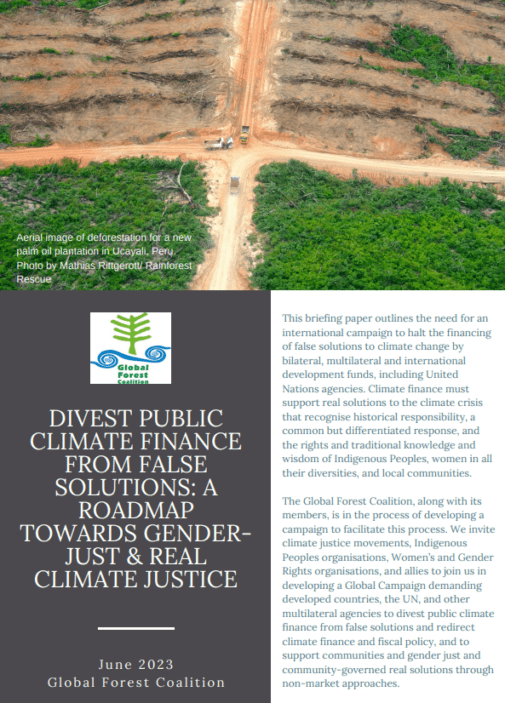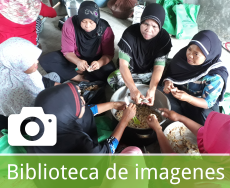Modelos contrastantes de producción de alimentos: Destrucción forestal en Brasil frente a conservación forestal en Chad
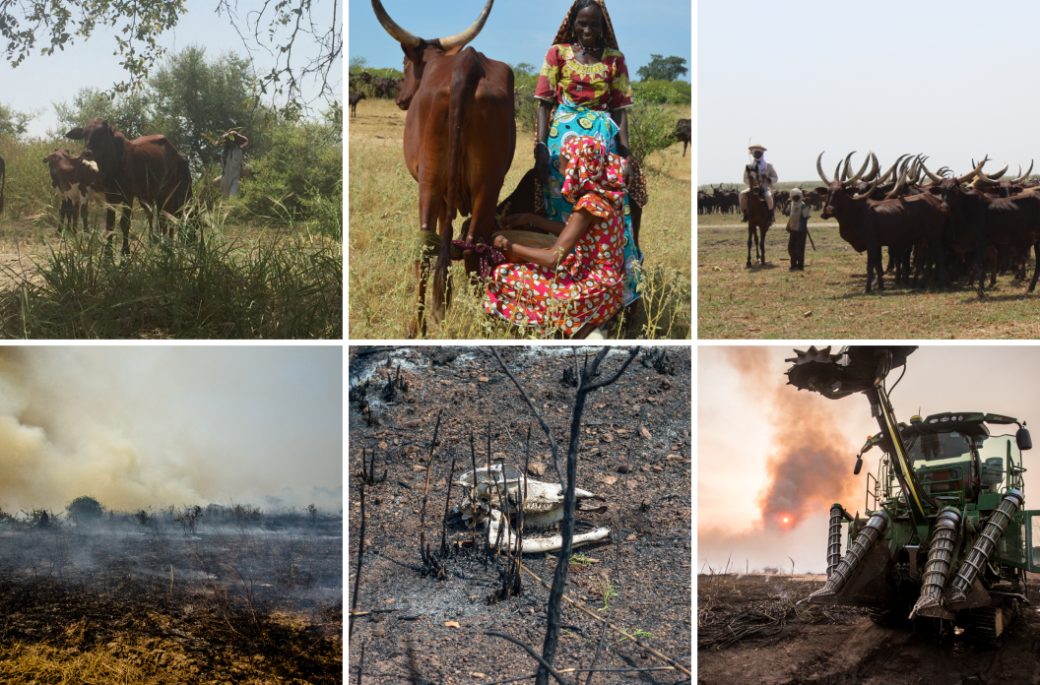
El 10 de diciembre se conmemora el día en que la Asamblea General de las Naciones Unidas aprobó la Declaración Universal de Derechos Humanos en 1948. Aunque esta declaración sienta las bases para la protección universal de los derechos humanos fundamentales, más de 70 años después, hay pocas razones para el optimismo de que este objetivo se logre.
Hoy publicamos dos ensayos fotográficos contrastantes que destacan los impactos devastadores de la explotación forestal y de otros ecosistemas sobre los derechos de los pueblos de los bosques, así como las luchas de los Pueblos Indígenas para hacer valer sus derechos sobre la tierra y mantener sus prácticas tradicionales.
continuar leyendo en ingles…
On the one hand, the Mbororo Indigenous Peoples’ ancestral practice of pastoralism in the Sahel in Central Africa has ensured food sovereignty for local communities since time immemorial, while at the same time conserving forests and grasslands through a deep connection to their environment. Today, however, the Mbororo suffer numerous human rights violations centred on climate change, extractivism and land-grabbing, and must fight for their rights and freedoms to be respected.
On the other hand, a relentless commodity-driven food production model is causing devastation on an unthinkable scale throughout South America’s key biomes, including the Pantanal, which is the world’s largest wetland ecosystem. This is undermining the way of life of Indigenous Peoples and traditional communities completely, and the ever-increasing number of environmental and human rights defenders that are killed, threatened and criminalized for standing up for their communities is a terrible reminder of the dangers they face.
To stand up for human rights, support the work of The Association of Indigenous Women and Peoples of Chad-Mbororo (AFPAT) and Federation of Organizations for Social and Educational Assistance (FASE).
Pastoralism in the Sahel: Traditional practices support forest conservation
The Mbororo are Indigenous Peoples who practice transhumance in the semi-arid Sahel region of Central Africa. The Republic of Chad is home to about 250,000 Mbororo people who migrate seasonally, traveling up to 1,000 kilometres between tropical forests and savannas to feed their livestock. They use their traditional knowledge to ensure food sovereignty while protecting local ecosystems, conserving forests and allowing nature to regenerate.
The Mbororo face threats due to climate change, desertification and biodiversity loss as well as conflicts over territory and land grabbing. Increasing land use changes and encroachment by extractive industry and sedentary agriculture on grazing lands have had major impacts on communities and their livelihoods.
The Association of Indigenous Women and Peoples of Chad-Mbororo (AFPAT) has worked to improve living conditions among the Mbororo in Chad, helping to reopen transhumance corridors and resolve conflicts between farmers and herders in the Lake Chad region and Mayo-Kebbi Est. They see traditional pastoralism not as agriculture’s past, but rather, its future, and believe policymakers must integrate the rights and knowledge of Indigenous peoples into their plans, as they can lead to a sustainable future.
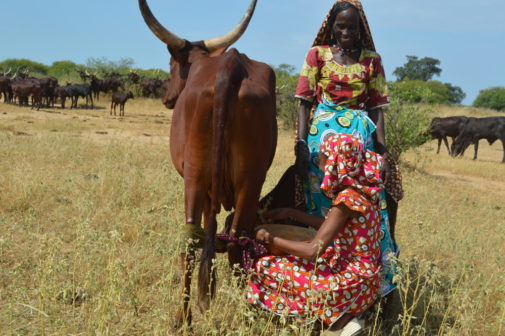
Mbororo practices follow a basic pattern corresponding to the dry season and rainy season. Photo: Salma Khalil, Association En Terre Indigène
In the dry season, Mbororo herders move cattle and other ruminants to the savannas around Lake Chad, allowing old grazing sites to regenerate. Lake Chad is shrinking due to global warming, affecting the quality of life of nomadic populations. Photo: Salma Khalil, Association En Terre Indigène
In the rainy season, Mbororo herders move away from Lake Chad to forested areas, gaining access to extensive pastures, water and livelihoods for families who depend on the mobility and care of the herds. Photo: Hindou Oumarou Ibrahim, AFPAT
Their agropastoralist system promotes equilibrium in ecosystems and moving from dry savannas to tropical forests are decisions that consider past and future generations. In this way, sustainability is integrated into the pastoralist way of living. Photo: Hindou Oumarou Ibrahim, AFPAT
Members of AFPAT in Chad. Photo: AFPAT.
More information about the Association of Indigenous Women and Peoples of Chad-Mbororo (AFPAT) can be found at www.afpat.net
Pantanal on fire: The impacts of soybean and livestock production in Mato Grosso, Brazil
Compiled by FASE. Photographer: João Paulo Guimarães, @joaopaulofotografia
2020 brought major tragedies in Brazil from a socio-environmental point of view. The COVID-19 pandemic compounded the Bolsonaro government’s anti-environment policies, with an exponential increase in deforestation in the Amazon, Cerrado and Pantanal biomes. It also strengthened the development model that favors agribusiness-controlled livestock and soy production, to the detriment of traditional peoples and communities who continue to resist despite having lost their land.
This photo essay focuses on this year’s “burning season”, a widespread criminal practice that happens every year. It portrays the impacts of fire in the Pantanal, the world’s largest wetland, and the images bring to light the destruction of this transitional biome which is so fundamental to the ecological balance of the Amazon and the Brazilian Cerrado. According to SOS Pantanal, 28% of the biome was affected by fire in 2020, a result of criminal land grabbing practices linked to soybean and livestock production.
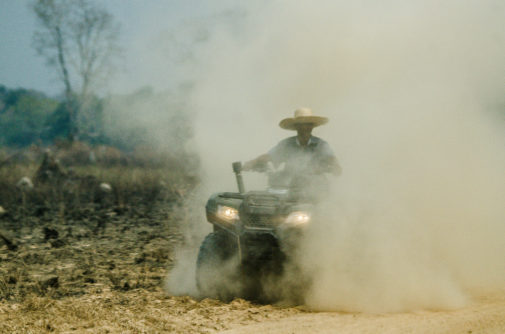
A Pantaneiro (term for a person from the Pantanal) worker at Fazenda São José da Beira amid fires. The farm is located in Transpantaneira, where it produces soy and cattle.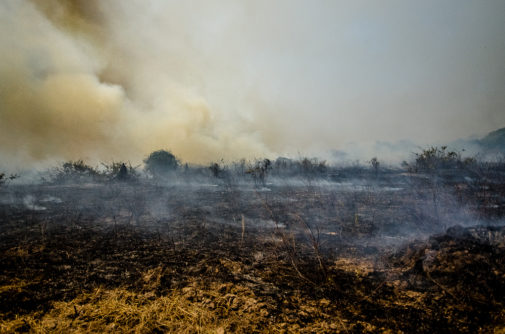
The area around the Fazenda São José da Beira is completely burned.
Cattle fleeing through pasture at a farm affected by several fires.
Aerial image of an area devastated by fire.
Fire burning at night at the 58,000 ha Fazenda São João S/A., owned by the Camargo e Correa company, in the municipality of Poconé, MT (heart of the Pantanal), with 15,000 head of cattle for beef. The farm specializes in the genetic “improvement” of cattle and the sale of bull semen.
An animal skull in a burned forest.
On a farm in Cáceres, MT, cattle share small streams with other animals. Drought has caused water shortages and the lack of trees and heat are another cause of death for wildlife, on top of the fires.
At a COOPERB sugar cane plant in Mirasol, close to Cáceres, a machine cutting sugar cane is caught in a fire that sweeps in from a nearby farm.
More information about the Federation of Organizations for Social and Educational Assistance (FASE) can be found at https://fase.org.br/

